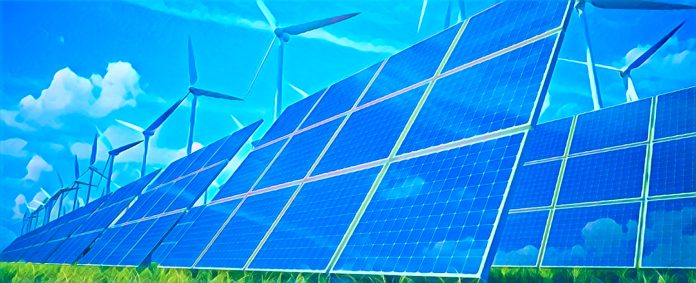KEY POINTS
-
Nigeria has vast potential for renewable energy, particularly in solar and wind power, which could significantly reduce its reliance on fossil fuels.
-
Key challenges facing the sector include inadequate infrastructure, lack of financing, and policy inconsistencies, which hinder the growth of renewable energy projects.
-
Despite these obstacles, there are opportunities for renewable energy growth, driven by a young population, technological advancements, and global climate action commitments.
The future of renewable energy in Nigeria holds immense promise, with the country possessing abundant resources such as solar, wind, and hydropower.
However, realizing the full potential of renewable energy in Nigeria will require overcoming several challenges, ranging from infrastructure deficiencies to policy inconsistencies.
Nigeria, one of Africa’s most populous nations and largest economies, is rich in natural resources. While it has long been dependent on fossil fuels, there is a growing recognition of the need to diversify its energy mix.
With its abundant sunshine, Nigeria is well-positioned to tap into solar energy. The country experiences high solar radiation throughout the year, particularly in the northern regions. According to the International Renewable Energy Agency (IRENA), Nigeria has the potential to generate over 430 gigawatts of solar energy.
This potential has attracted significant interest from investors and organisations aiming to harness solar power to meet both domestic and industrial needs.
Solar energy has proven to be an effective solution in rural areas, where grid electricity is often unreliable or nonexistent.
In fact, many off-grid solar systems are already providing power to homes, schools, and businesses in remote areas of the country.
“The energy demand in Nigeria far exceeds what is currently available through the national grid,” says Dr. Bola Adebayo, an energy policy expert at the Nigerian Energy Commission. “Solar power offers a viable alternative, especially for communities far from the grid infrastructure.”
The country also has vast potential in wind energy. The coastal regions, especially in states like Lagos and Ogun, could become major hubs for wind energy generation.
These areas have consistent wind speeds that could be harnessed to generate electricity, although, at present, wind power projects remain limited.
Research suggests that Nigeria could generate up to 14,000 megawatts of wind power, providing much-needed energy to supplement the national grid.
Despite this potential, several challenges continue to hinder the growth of renewable energy in Nigeria
One of the main obstacles is the lack of adequate infrastructure. The country’s energy grid is outdated, inefficient, and often prone to power outages. This means that even if renewable energy sources are successfully developed, there is a lack of a robust system to transmit and distribute the power effectively across the country.
Additionally, Nigeria’s power grid is unable to accommodate a significant increase in renewable energy generation, which requires a modernized infrastructure capable of balancing the intermittent nature of renewable sources like solar and wind.
Another significant challenge is financing. While there is growing interest in renewable energy investments, the sector is still seen as high-risk by many investors due to Nigeria’s volatile economic environment and political instability.
The high capital costs involved in setting up renewable energy projects further complicate matters. While the government has taken steps to attract investments in renewables, such as offering incentives and creating favorable policies, these efforts have not yet been enough to overcome the financial hurdles.
“There is a need for stronger collaboration between the government, private investors, and international organizations to make renewable energy projects more financially viable,” says Olumide Adedeji, an energy consultant based in Lagos. “The government must implement more consistent and supportive policies to ensure that renewable energy investments can thrive in Nigeria.”
Regulatory and policy inconsistencies also pose a major challenge to the growth of the sector. While Nigeria has set ambitious renewable energy targets, progress has been slow due to a lack of clear, long-term policies. The fluctuating policy environment, combined with frequent changes in government leadership, creates uncertainty for investors and hinders long-term planning.
However, despite these challenges, there are several opportunities for growth. For one, Nigeria’s young, tech-savvy population presents an opportunity for widespread adoption of renewable energy technologies, particularly in the form of decentralized, off-grid solutions.
The rise of solar-powered mobile phone chargers, small-scale solar panel systems, and home-based wind turbines are indicative of a shift toward more localised, sustainable energy solutions.
Furthermore, the global push for carbon reduction and the growing interest in climate action present an opportunity for Nigeria to capitalize on its renewable energy potential as part of a broader commitment to reducing carbon emissions.
The Nigerian government has signed the Paris Agreement and pledged to reduce greenhouse gas emissions by 20% by 2030, creating further incentives for renewable energy development.



